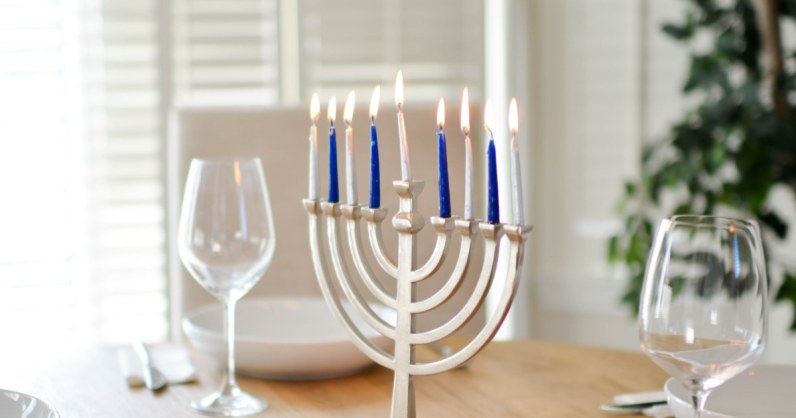Why Are There So Many Ways to Spell Hanukkah (Or Is It Chanukah)?

Hanukkah is widely known across the English-speaking world as an important Jewish holiday. Most people are familiar with when the holiday takes place, whether they celebrate it or not. However, many other details about it are less widely known, for instance, the fact that it commemorates the rededication of the Second Temple of Jerusalem, or that the menorah’s burning candles represent the continued burning of that temple’s lantern. But English speakers are often thwarted by an even more elementary question about this particular holiday: how do you spell it?
A large number of variants are possible. The Oxford English Dictionary, for example, lists over twenty options. According to most sources, the most common spellings are Hanukkah and Chanukah. Such different spellings for the same pronunciation may seem surprising: the initial consonants ch and h usually produce very different sounds in English. How did this come about?
Transliteration Difficulties
It should come as no surprise that the word Hanukkah comes from the Hebrew language, and that Hebrew and English are written in different alphabets. As a result, Hebrew words must be transliterated (converted from one alphabet into another) if they are to be readable in English. There is no definitive standard for Hebrew-to-English transliteration, meaning that a number of different approaches exist, particularly in cases of sounds that do not usually exist in English, such as the initial consonant of the Hebrew word for Hanukkah: חנוכה (read from right to left). Represented by the letter het (ח), this consonant is pronounced similarly to the Scottish ch in loch (IPA: [χ]). The closest letter to het in standard English, phonetically speaking, is h. The digraph ch, on the other hand, was chosen to represent the distinct Hebrew sound, in contrast with the soft English h.
Naturally, neither choice is perfect: ch causes confusion with the existing English digraph ch, which usually has an entirely different pronunciation (as in chat or cheat). Meanwhile, h makes no distinction between the initial consonant of Hanukkah and the initial h of any other English word, such as house or hood (although, in fact, most English speakers do pronounce the initial h in Hanukkah as a regular English h).
A more subtle difference is the double k in some spellings, such as Hanukkah, as opposed to the single one in others, such as Chanukah. This relates to a diacritic mark known as a dagesh: a small dot inside the Hebrew letter kaf (כּ) which changes how that letter is pronounced. Confusingly, diacritics are generally omitted in written Hebrew, making the dagesh in חנוכה (Hanukkah) invisible. In any case, the kaf with dagesh (visible or not) in modern Hebrew makes the same sound as a single English k, so why double it? The answer lies in Classical Hebrew, which used the dagesh to indicate the intensification (doubling) of a consonant. So the כּ in Classical Hebrew really did sound like two k’s pronounced in quick succession, hence the kk in some English spellings.
Not All Spellings Are Equal
By now, it should be clear that transliteration from Hebrew presents a number of challenges. Hanukkah is far from the only Hebrew-origin word with a multitude of spellings: chuppah or huppah? matzoh, matzo or matzah? kippah, kippa, kipa or kipah? Each variant exists for its own reasons, and each is valid in English.
So does this mean we can spell Hanukkah however we please? After all, with so many competing approaches to transliteration and so many variants in use, it would be impossible to select a definitively correct spelling. Moreover, Jewish groups across the English-speaking world use a variety of spellings, so you are unlikely to cause offence regardless of your choice.
However, linguistically speaking, some choices are better than others. For instance, Hannukah, another relatively common spelling, includes a double n. Unlike the double k in Hanukkah, the doubling of the n has no basis in any transliteration system. It is likely part of a wider tendency to double certain consonants in English, probably resulting from a misreading of another English transliteration (in other words, a spelling mistake). It is also a good idea to avoid extremely rare spellings. For example, a web search for Khanukka, listed among the Oxford English Dictionary’s variants, produces almost no English-language results.
So, how should you spell Hanukkah? We suggest you choose a spelling that is both widely used and does not include any questionable double consonants. Based on frequency, Hanukkah and Chanukah best satisfy these criteria. But whichever spelling you choose, make sure you use the same one throughout your text. We wish you a happy, and orthographically consistent, Hanukkah!




